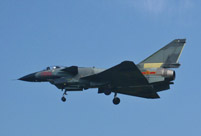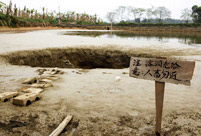

US Defense Secretary Ashton Carter has scrubbed China from his Asia tour which started Sunday, and will only visit India and the Philippines instead. Carter said during a speech Friday that the US is making "enormous investments" in its capabilities.
It remains unclear whether Carter canceled his China visit because of technical reasons or because he intended to send a message. But this is not important. In the China-US military relationship, neither side is seeking favor from the other. In the past, bilateral military communications were lessened or even suspended in line with the ups and downs of the China-US relationship. In most cases, it is the US that is more active in resuming and improving communications.
If Carter canceled his China trip to express his dissatisfaction against China's action in the South China Sea, it only reflects that the US military is becoming less confident, and more sensitive and emotional. The US military is already quite advanced and strong. It seems that the US will never feel at ease until it has absolute military predominance over China. This explains that Washington's China strategy lacks justification. The US is using the South China Sea disputes as an excuse to intervene in the region. Washington's posture in the region is much more aggressive than the South China Sea policy it claims.
Washington cares more about China's rise. Claiming that China is flexing its muscles and wants to write the rules in the South China Sea, the US aims to suppress China.
The South China Sea seems to be becoming a demonstration area of China-US competition. As every single move in the region implies the attitudes and will of the two sides, neither is willing to give in. At least, top US officials have left an impression that the US is moving in this direction.
Given the South China Sea's proximity to China, when Washington imposes additional pressure on the issue, Beijing is at the receiving end. But pulling back is not an option. The US has also demonstrated hesitation as there is disagreement on whether the South China Sea is the right arena to launch a competition with China.
The US is stirring up more regional countries to confront Beijing, and at the same time, it is escalating the situation with US Navy vessels and joint military drills. It is holding all the possibilities of deeper military involvement but not wanting to be part of a war.
In many years to come, as long as China strengthens its presence in the South China Sea and the West Pacific, the US will respond with new military deployments. New strength will not make China feel easy. An ultimate solution will not come until the balance of power between China and the US witnesses a fundamental change in the West Pacific, which will take a long time to realize.
It is a test of China's patience. Many small countries plan to take big powers hostage, but there have been few successful cases in history. Mostly small nations became victims if they entangled themselves into big power competitions. However, China doesn't have to blame smaller nations for Sino-US tensions.
 The evolution of J-10 fighter
The evolution of J-10 fighter Top 10 Asian beauties in 2016
Top 10 Asian beauties in 2016 Train rides through blossoms
Train rides through blossoms North Sea Fleet conducts drill in West Pacific Ocean
North Sea Fleet conducts drill in West Pacific Ocean Breathtaking aerial photos of tulip blossoms in C China
Breathtaking aerial photos of tulip blossoms in C China Horrific: Pit swallows 25 tons of fish overnight
Horrific: Pit swallows 25 tons of fish overnight Police officers learn Wing Chun in E. China
Police officers learn Wing Chun in E. China Charming models compete in super model contest in Beijing
Charming models compete in super model contest in Beijing Beauties wearing Tang dynasty costume pick tea leaves
Beauties wearing Tang dynasty costume pick tea leaves Top 20 hottest women in the world in 2014
Top 20 hottest women in the world in 2014 Top 10 hardest languages to learn
Top 10 hardest languages to learn 10 Chinese female stars with most beautiful faces
10 Chinese female stars with most beautiful faces China’s Top 10 Unique Bridges, Highways and Roads
China’s Top 10 Unique Bridges, Highways and Roads Tokyo to play petty tricks at G7 Meeting
Tokyo to play petty tricks at G7 Meeting
 Tourists visit South China Sea islands as part of plan to develop disputed region
Tourists visit South China Sea islands as part of plan to develop disputed region
 Near abduction sparks debate about violence towards women in China
Near abduction sparks debate about violence towards women in China
 How viral videos are catapulting English-language instructors to Internet fame
How viral videos are catapulting English-language instructors to Internet fame
Day|Week